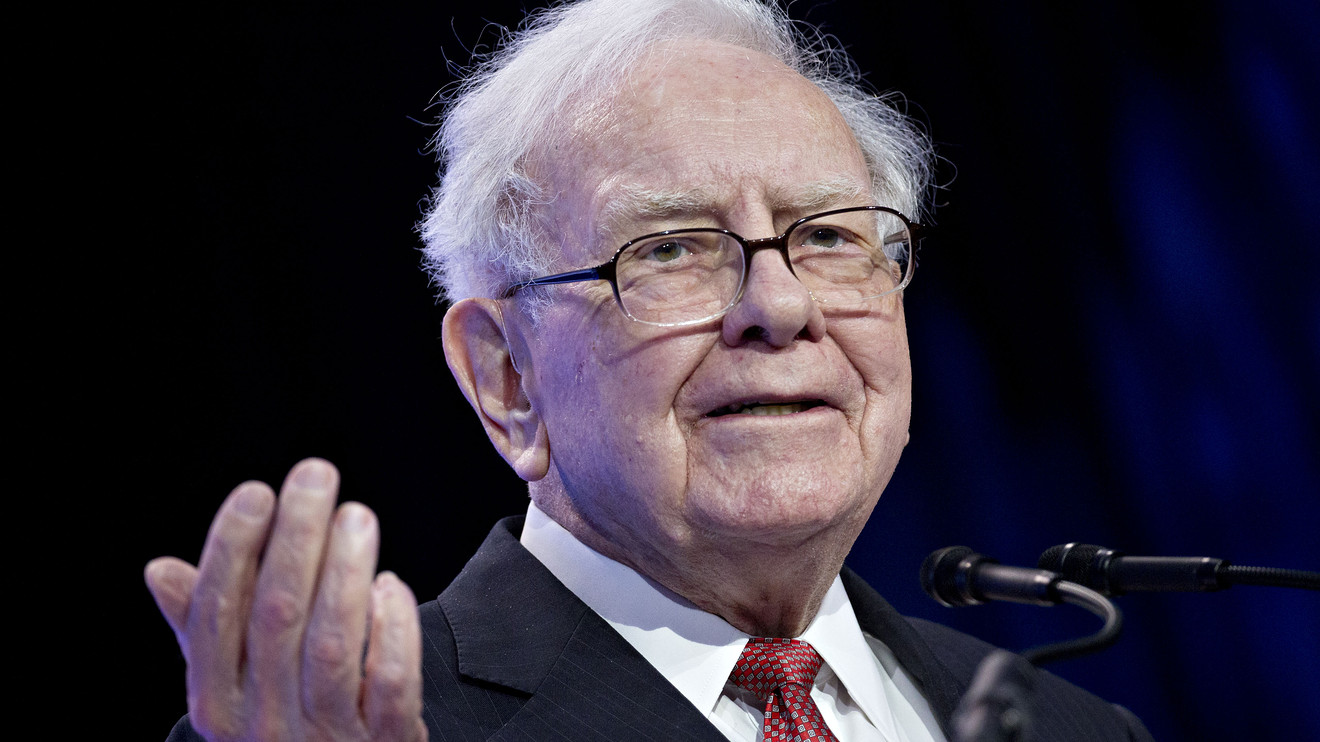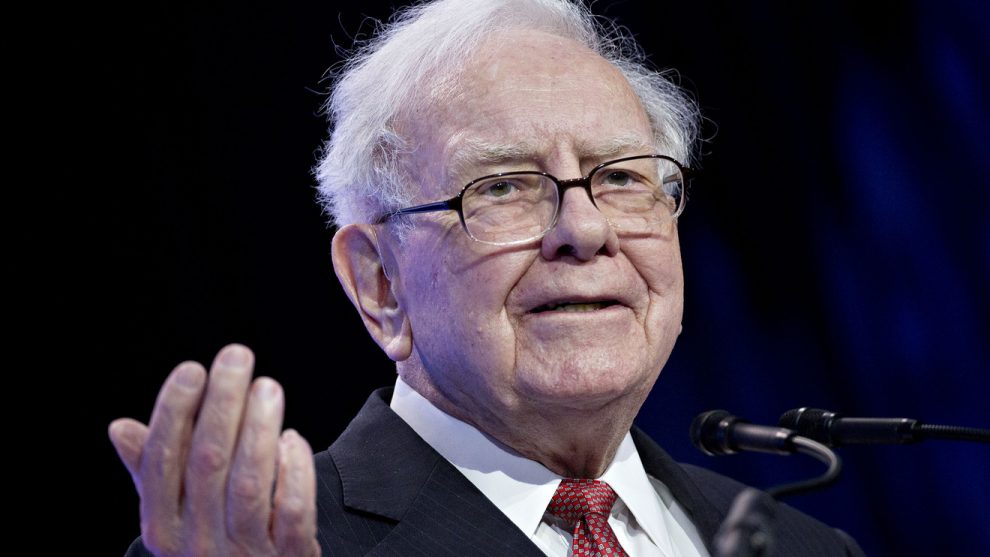
Warren Buffett’s Berkshire Hathaway just doubled down on Liberty Sirius XM. Does that mean you should, too?
Yes, for three reasons.
1. Despite speculation to the contrary, Buffett has not “lost his touch.” True, it looks like Buffett and his team made a mistake selling airlines, as I suggested in a May 27 column.
The seven airlines I suggested in the column were up 30% vs. 6.2% for the S&P 500 Index SPX, -0.78% as of the June 5 close. The two that Buffett sold were up 22.5%. His two: Delta Airlines DAL, -7.99% and Southwest Airlines LUV, -6.57%. The other five: United Airlines UAL, -8.30%, SkyWest SKYW, -7.15%, Alaska Air ALK, -8.22%, JetBlue Airways JBLU, -8.78% and American Airlines AAL, -9.47%. (Berkshire Hathaway reported the airline sales April 2, but its two airlines are probably up around the same amount since then, as the gains cited above.)
If he did make an error — we’ll see what the next flu season brings — so what? Everyone makes mistakes, as Buffett disarmingly loves to admit. Mistakes do not taint all future calls. Buffett and his team at Berkshire Hathaway BRK.B, -2.66% are still great investors.
2. Next, media mogul John Malone, the brains behind Liberty Sirius XM LSXMA, -3.75%, is also someone who is good to invest alongside. He does create maddeningly complex constellations of tracking stocks and financial maneuvers, which are a real headache to figure out.
But one of my two favorite Malonoligists, Gabelli Media Moguls Fund MOGLX, +2.95% portfolio manager Christopher Marangi, notes Malone’s record of creating shareholder wealth is remarkable. In what can only be described as a labor of love, Marangi pieced together all the splinters and tracking stocks of every Malone media company since Liberty was spun out of AT&T T, -1.92% in 2003. They have returned a 9.3% annualized gain, compared with 6.4% for the S&P 500. For a detailed look at Marangi’s take on the Malone melange of stocks, trackers and rights offerings, click here.
3. The third reason to consider owning Liberty Sirius XM is that my other favorite Malonoligist, analyst Rob Routh at FBN Securities, believes it looks attractive at current levels. Routh has put a lot of good media stock calls in my investing columns over the years (including Sirius and several Malone trackers that went on to do quite well), so his analysis is worth listening to. He thinks Liberty Sirius XM is worth $52.50. It recently traded at $39.80. It also trades as Liberty Sirius XM LSXMB, -2.91% and Liberty Sirius XM (LSKMK). These tracking stocks have varying degrees of voting rights. I suggest going with LSXMA to keep things simple.
Here’s more on how Berkshire recently raised its stake, the latest Malone machinations that triggered this move by Buffett, and what it all means for Liberty Sirius XM investors.
Less money, more problems
Going into the Covid-19 economic meltdown, business was humming at Malone’s Formula One FWONA, -4.70% and Live Nation Entertainment LYV, -6.44%. One does popular auto races, and the other is in the pop music concert business. But when the economy shut down, these businesses were obviously in trouble.
“Formula One came close to tripping loan covenants,” says Routh.
So Malone had to act. His solution: Move Live Nation and some debt out of the Formula One tracker stock vehicle and into Liberty Sirius XM. Then inject cash in Formula One to save it. Live Nation gets its support from the prodigious cash flow at Sirius XM.
To fund the cash injection, Malone did a capital raise called a rights offering. (Malone and Liberty Sirius XM CEO Greg Maffei bought, too.) The deal gives Formula One the financial strength to weather an auto race hiatus.
“The gist of it is, Liberty saved Formula One,” says Marangi. Housing Formula One’s Live Nation stake inside Liberty Sirius better positions Malone to use satellite radio cash flow to increase his Live Nation ownership by purchasing more stock. This makes sense because Live Nation and Sirius are both in music entertainment.
Ahead of the rights offering, Berkshire Hathaway owned about 45.8 million shares of the LSXMA and LSXMK trackers. Shareholders got a little under one share for each 10 held. So coming out of the rights offering, Berkshire will own about 56.1 million shares of the two tracking stocks. Berkshire is essentially raising its position by around 10%.
“Now maybe there is an opportunity to buy the whole thing and combine it with Sirius,” says Marangi.
Technical point: You will see all of this referred to as the “reattribution” if you read about this on your own.
The rest of Liberty Sirius XM
Besides housing Live Nation stock, Liberty Sirius XM is all about Sirius XM SIRI, -3.07% satellite radio (which Buffett also owns big time). Liberty Sirius XM holds just over 70% of Sirius XM stock. It’s easy to see why Buffett likes Sirius XM. It has a lot of the attributes he favors. Sirius XM dominates its business, satellite radio. It has attractive return on capital and free cash flow. It has significant recurring revenue from subscribers.
Another plus here is that you get Sirius XM radio at a big discount to where it trades, when you buy Liberty Sirius XM. Adjust for the value of the shares of other businesses housed inside Liberty Sirius XM, which essentially means Live Nation, and owning Liberty Sirius XM shares gives you exposure to Sirius XM at around a 37% discount to where it trades in the market, estimates Routh.
Why the discount? Liberty Sirius XM is a tracking stock, which merely represents the assets of other businesses without giving shareholders any legal rights to those assets. Malone can do whatever he wants with them, shuffling them around as he sees fit. This is a risk, which calls for a discount. “You may wake up one day and own something you didn’t want to own,” says Routh. The hope is that at some point Malone and Liberty Sirius XM will close the discount by taking some action like an outright full merger of the two.
Even if they don’t, Sirius XM looks attractive, says Routh. Sure, it faces competition from Spotify SPOT, +2.25%, Apple AAPL, +3.26% and Amazon AMZN, +3.20% in audio content. But Sirius XM has been able to grow its subscriber base for years, despite this threat, because it offers a different kind of product at a reasonable price.
Besides Howard Stern, who may be retiring soon, Sirius XM offers unique sports talk, pop music star content and podcasts. It offers exclusive audio access to TV content from Fox, CNN, CBS and CNBC. It owns Pandora radio.
An obstacle for potential competitors in car satellite radio is that auto companies like General Motors GM, -2.57%, Ford F, -4.06% and Fiat Chrysler Automobiles FCAU, -5.24% are slow to change and add different satellite devices with their cars.
“It is hard to compete with what Sirius XM has built,” says Routh. SiriusXM’s 2019 revenue grew 7% to a record $6.2 billion, driven by subscriber growth and price increases.
‘Public space’ plays
But what about Live Nation? This one is trickier. We still don’t know how fast concerts will come back or how bad any second wave of Covid-19 might be. Live Nation has also booked a lot of revenue from tickets sold. Customers have been promised rescheduled events, but at some point they might demand refunds.
“There is so much uncertainty with this business,” says Routh.
My own take is that Live Nation looks attractive here. It’s part of a “public space” theme I’ve suggested to my Brush Up on Stocks subscribers since mid-March. The idea here is that casino, gym, retail, cruise line and amusement park stocks were all heavily discounted by the lockdown. That meant they’d come back the most, so it made sense to buy quality “public space” companies where insiders were also buying.
The eight stocks I suggested to subscribers for this theme March 17 were up 83.7% by June 5, compared with 32.7% for the S&P 500. They were: Cedar Fair FUN, -2.80%, Lowe’s Cos. LOW, -0.81%, Home Depot HD, -0.05%, Howard Hughes HHC, -6.30%, Royal Caribbean Cruises RCL, -7.04%, Carnival CCL, -7.64%, Planet Fitness PLNT, -3.60% and Churchill Downs CHDN, -1.80%. I think they still have more upside as Covid-19 fears ease and the economy recovers, and Live Nation does too.
At the time of publication, Michael Brush had no positions in any stocks mentioned in this column. Brush has suggested DAL, UAL, LUV, AAL, BRK.B, T, SIRI, AMZN, GM, F, FUN, LOW, HD, HHC, RCL, CCL, PLNT and CHDN in his stock newsletter, Brush Up on Stocks. Routh subscribes to the stock letter. Brush is a Manhattan-based financial writer who has covered business for the New York Times and The Economist Group, and he attended Columbia Business School. Follow Brush on Twitter: @mbrushstocks.











Add Comment